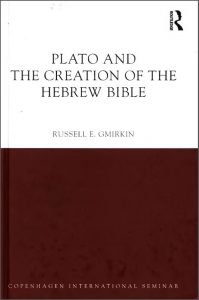 Continuing from Plato and the Hebrew Bible: Legal Narratives (esp. Panegyrics), continued . . . .
Continuing from Plato and the Hebrew Bible: Legal Narratives (esp. Panegyrics), continued . . . .
There is one more Greek comparative illustration I wanted to look at before picking up with Gmirkin’s main example as I promised at the end of the previous post. I had meant to look at a section in Plato’s Timaeus before moving on so will do that here. Gmirkin had addressed the discussion related to Plato’s myth of Atlantis in his previous chapter when comparing the biblical and Greek laws and promises associated with sacred oaths. In this post I bring in the Atlantis myth in the context of Plato’s discussion of the importance of the lawgiver Solon, since Plato’s account of Solon forms part of Gmirkin’s chapter 5 on legal narratives.
Recall that two posts earlier I mentioned that Gmirkin points to the wide range of literary genres in the classical Greek writings through which interest and appreciation of law codes, constitutions and the narratives relating to their introduction and the lives of the lawgivers themselves is expressed. One more that we examine in this post is the philosophical discourse. Plato’s Laws also contains “historical” types of narratives that lead to the institution of political and legislative institutions but since (if I recall correctly) we have discussed some of those in other posts (including posts prior to the publication of Gmirkin’s book) we will focus here on fleshing out an endnote to Gmirkin’s chapter 5.
It is from Plato’s Timaeus, and the wise lawgiver Solon is said to have acquired much of his great wisdom from Egypt. So essentially it is a tale of law origins within the tale of another famous lawgiver. Wheels within wheels. Continue reading “Plato and the Hebrew Bible: Legal Narratives continued . . . Solon and Atlantis”
